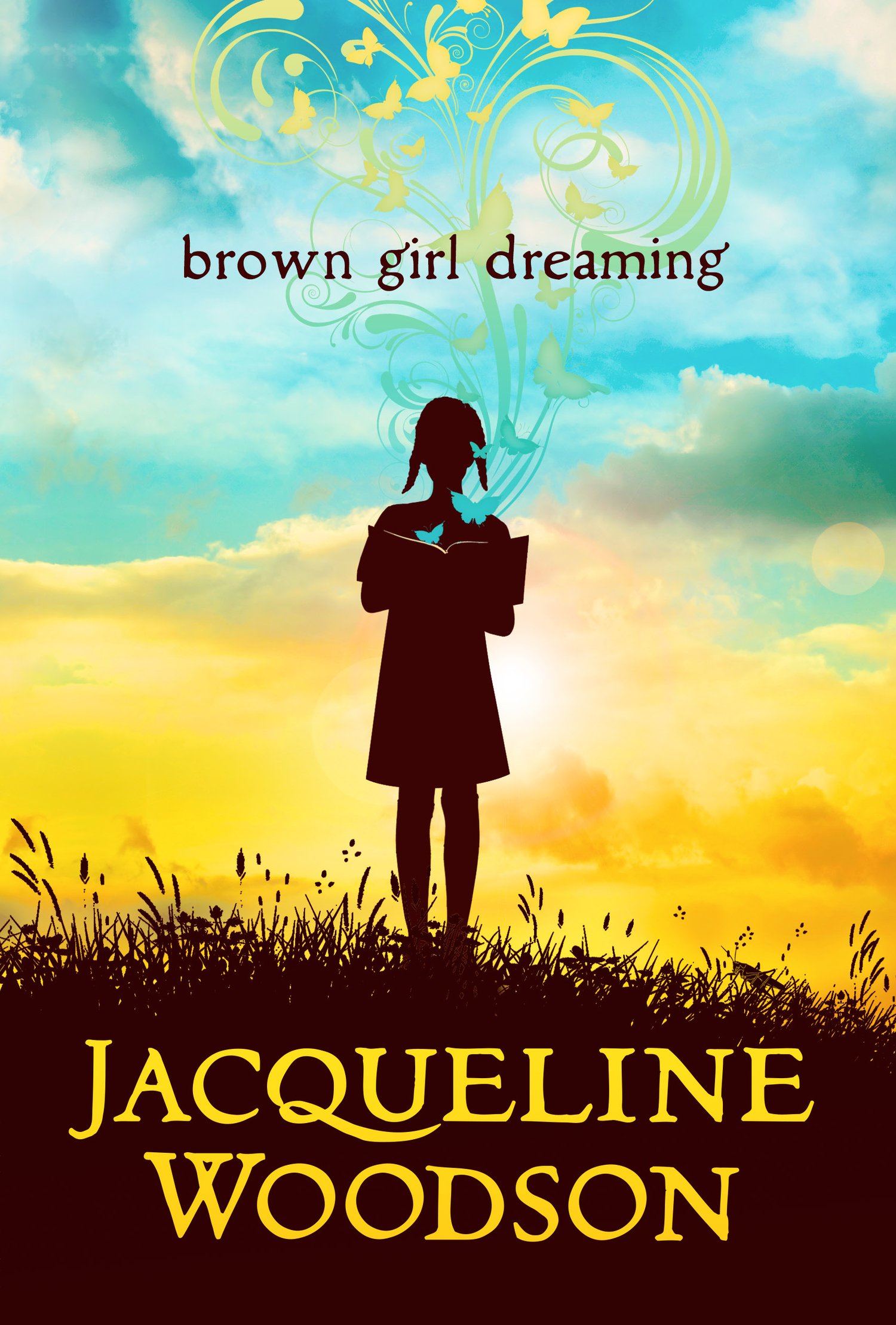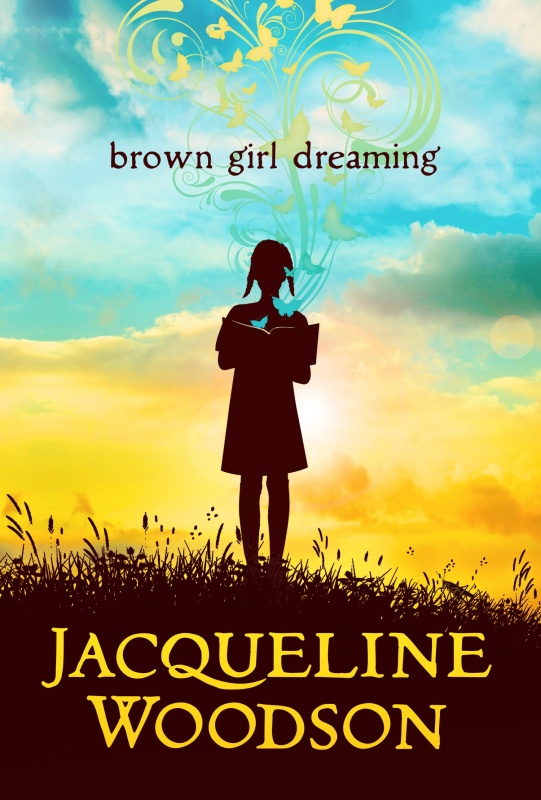17 Sep / brown girl dreaming by Jacqueline Woodson

 Not to play favorites, but since the 2014 National Book Awards Longlist For Young People’s Literature was announced earlier this week, I’m putting my bet on Jacqueline Woodson’s childhood memoir-in-verse, brown girl dreaming, to not only to make the shortlist (announced October 15), but go all the way to winner (awarded November 19). She’s been an NBA finalist twice before (for Hush and Locomotion), but third time’s going to be the charm.
Not to play favorites, but since the 2014 National Book Awards Longlist For Young People’s Literature was announced earlier this week, I’m putting my bet on Jacqueline Woodson’s childhood memoir-in-verse, brown girl dreaming, to not only to make the shortlist (announced October 15), but go all the way to winner (awarded November 19). She’s been an NBA finalist twice before (for Hush and Locomotion), but third time’s going to be the charm.
The book’s opening poem marks Woodson’s birth – “february 12, 1963” – a Tuesday, as she enters the world in “Columbus, Ohio, / USA – / a country caught / between Black and White.” She is a Woodson of Ohio, where her “father’s family / can trace their history back / to Thomas Woodson of Chillicothe, said to be / the first son of Thomas Jefferson and Sally Hemings.” Such ancestry marks the Woodsons for achievement: “ask any Woodson why / you can’t go down the Woodson line / without / finding / doctors and lawyers and teachers / athletes and scholars and people in government.”
Her father names her after himself, “Name a girl Jack, my father said, / and she can’t help but / grow up strong.” But before she leaves the hospital, her mother adds two extra letters and calls her Jackie, then “Jacqueline, just in case / I grew up and wanted something a little bit longer / further away from / Jack.”
That distance from her father comes sooner than later when her mother moves to Greenville, South Carolina, with Jacqueline – “a still-crawling baby” – and her two older siblings. The title of “Daddy” now belongs to her maternal grandfather. Through the tumultuous 1960s and 1970s, she grows up surrounded by her mother’s family, first in Greenville, and then later in Brooklyn. She comes of age amidst civil rights marches and protests, claiming her identity through friendships, music, books, and most of all, her own words. Her sister disbelieves her ability: “It’s too good. Someone / taught that to you.” Her mother limits her possibilities: “Just as long as you’re not writing about our family.” And yet, her childhood declaration remains insistent: “I want to be a writer.” Most fortuitously for her readers, she hasn’t stopped dreaming, composing, arranging, authoring since.
Woodson’s prodigious award-winning titles are many, but none have been as revealingly intimate as dreaming. For aural choosers, that Woodson herself narrates is a mellifluous, nuanced gift. From her parents’ irreconcilable differences to her grandfather’s death, her uncle’s incarceration, her birthfather’s return into her life, and even her difficulties with early reading, Woodson is ever the self-described “listener” as she harvests the observations, thoughts, and memories which transform her from ‘brown girl dreaming’ to amazing woman writing.
Readers: Middle Grade, Young Adult
Published: 2014
